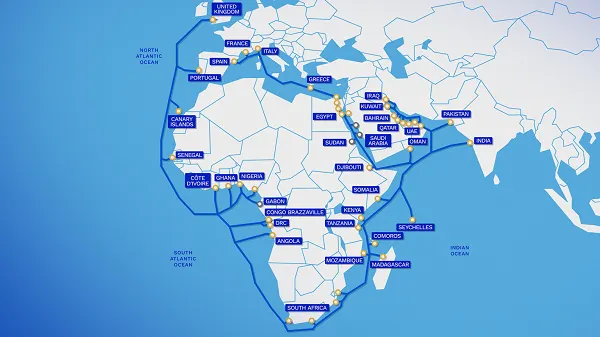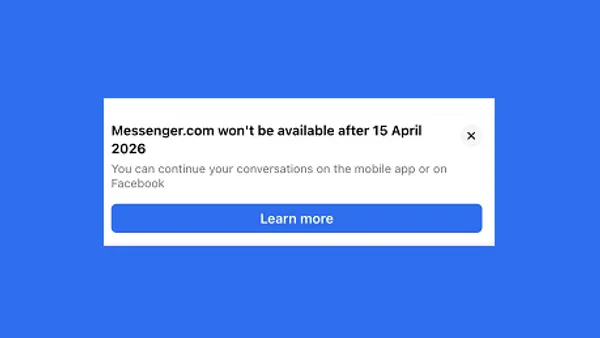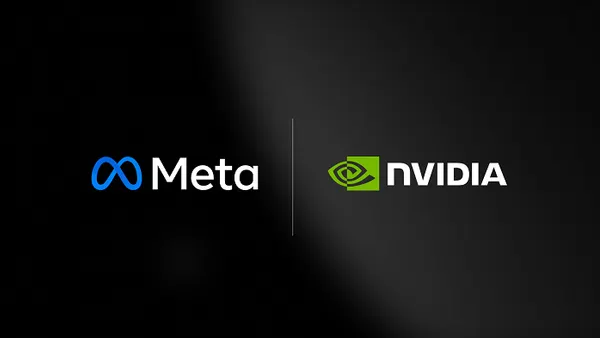A day after reports indicated that Meta’s long-running “2Africa” undersea cable project has been delayed once again due to concerns around regional security, Meta has reported that the majority of the project is now complete, while also tacitly acknowledging that some elements remain unfinished.
Originally announced back in 2021, Meta’s 2Africa project aims to facilitate advanced internet connection between three continents: Africa, Europe, and Asia.

Using 45k of undersea cabling, 2Africa aims to improve connectivity into various key markets, including Africa, India and the Middle East.
And Meta says that the project has largely been a success.
As per Meta:
“2Africa is the first cable to connect East and West Africa in a continuous system and link Africa to the Middle East, South Asia, and Europe. With a current reach of 33 countries and still counting, we’re enabling connectivity for 3 billion people across Africa, Europe, and Asia – more than 30% of the world’s population. This scale is unprecedented and we are proud to have partnered with stakeholders across the ecosystem to deliver new levels of connectivity at such scale.”
Meta says that the cabling project required new innovations in undersea cabling development, including increasing the cable’s burial depth by 50% over previous systems, in order to avoid seabed hazards “such as seamounts at hot brine pools, improving resilience and network availability.”
Though that may also include missile attacks as well.
According to Bloomberg, Meta has faced significant challenges in the development of the project, particularly in the Red Sea region, due to political tensions and border disputes.
Bloomberg says that 2Africa construction teams have been repeatedly subjected to missile attacks, which have allegedly carried out by the Iranian-backed Houthi armed group, causing significant delays and/or re-routing of the cable.
Google has also been faced with similar concerns with its undersea cabling projects, with both initiatives significantly impacted, and altered, due to concerns related to regional tensions.
Meta hasn’t officially acknowledged these issues, but its announcement post is carefully worded to note that the “core” of the project has been completed, as opposed to claiming full construction as planned.
Yet, despite these challenges, Meta remains confident that 2Africa will have a major impact on the region.
Meta says that 2Africa will eventually deliver “a step change in international bandwidth for Africa,” ensuring greater connectivity to the emerging region.
“For example, on the West segment, stretching from England to South Africa, and landing in countries such as Senegal, Ghana, Cote d’Ivoire, Nigeria, Gabon, the Republic of Congo, DRC, and Angola, the cable supports 21 terabits per second (Tbps) per fiber pair, with 8 fiber pairs on the trunk. This results in a total trunk capacity of up to 180 Tbps. This massive capacity ensures a near-limitless supply of international internet bandwidth, allowing internet service providers (ISPs) and mobile network operators (MNOs) to secure capacity at much lower wholesale prices.”
Indeed, Meta says that 2Africa is expected to contribute up to $US36.9 billion to Africa’s GDP within just the first two to three years of operation.
And as Meta looks to push its AI tools in more regions, it will also enable broader opportunity in more markets, helping to ensure that the company can maximize its revenue potential around the world.











